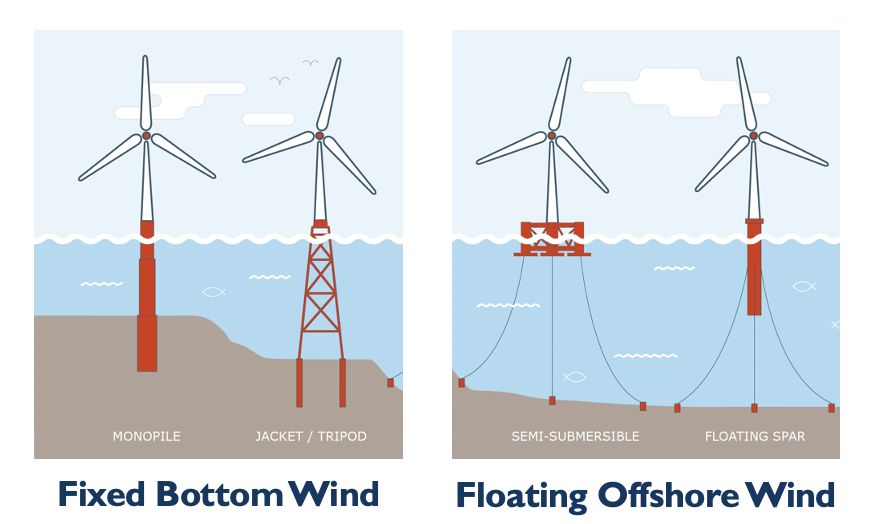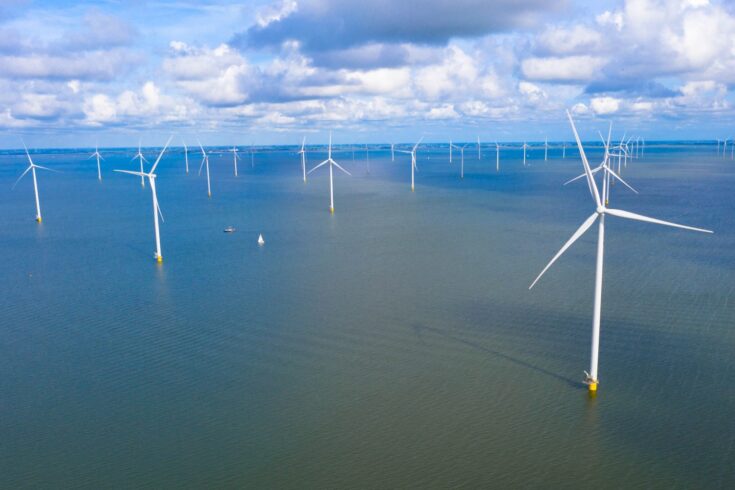I started my Engineering and Physical Sciences Research Council (EPSRC) Industrial Cooperative Award in Science and Engineering (ICASE) PhD in October 2020. Previously, I completed a BSc (Hons) in Physics and an MSc in Wind Energy Systems at the University of Strathclyde in Glasgow.
The offshore wind sector is currently seeing a surge in development due to recent commitments made by numerous European countries to meet net zero targets in upcoming years. These commitments provide a massive opportunity for the offshore wind sector to expand.
My PhD is focused on the new and rapidly emerging field of floating offshore wind, specifically concerned with the operations and maintenance (O&M) aspects. There is much debate about the most optimal strategy for repairing floating turbines; is it technically feasible to tow turbines back to shore for portside maintenance using inexpensive vessels, or should maintenance be performed in-situ via floating cranes? What are the technical challenges and constraints which must be considered to evaluate the realism of these strategies? And most importantly, how can we model these processes in order to drive cost reduction?
As of October 2022, I’ll be halfway through my PhD – I’ve spent a significant amount of time investigating the limitations and constraints which arise when considering floating wind O&M scenarios. It is crucial to explore these as they help to define optimal O&M strategies and give insight into the associated costs. This is especially crucial as O&M generally accounts for approximately 30% of overall lifecycle costs for fixed-bottom wind, and possibly even more for floating offshore wind as deployment sites are far from shore which result in harsher weather conditions and may require more complex marine operations.
The next stage of my work has been to investigate the changes that are required to adapt existing O&M tools to be suitable for floating wind uses. As it stands, existing tools are only suitable for fixed-bottom wind and are not able to simulate complex major replacement strategies such as tow-to-shore. Currently I’m working on adapting Strathclyde’s in-house O&M tool for floating wind uses, such a tool would allow us to assess long term logistical planning, forecast asset availability and estimate lifetime OPEX costs of projects.

Diagram showing a comparison of fixed versus floating offshore wind turbines. Left image: ‘bottom wind’, wind turbines are fixed to seabed with solid structure, one version shows a single column, the other a tripod structure. Right image: ‘floating offshore’, turbines are on floating platform that is tethered to the seabed.
Research support
I’ve been very fortunate to have received a lot of support and guidance from both my industrial and academic supervisors throughout my PhD so far. My academic supervisors have published an extensive amount of literature through collaboration and have many industry links. Combining this with the contact book of my industry partner, EDF, I’ve been able to communicate with many experts in both academia and industry for potential collaboration or general research guidance.
Being tied to an industrial sponsor who is very active in the field, I’m aware that my research outputs have real-world applications and implications. This allows me to work closely and liaise every step of the way with the associated project team to ensure my research makes accurate assumptions, produces meaningful results, and overall benefits us both. This keeps me constantly motivated and driven to find new and innovative ways to approach my research.
ICASE experience
Choosing to pursue an ICASE PhD programme has allowed me to have a direct link to my industry partner from day one – I’ve realised how valuable the similarities and differences between academic and industrial research can be and the collaboration opportunities that arise once the two cross over. Naturally, my PhD has acted as a bridge-builder between my industrial partner and my university and with that comes a natural contribution to the creation of new research collaborations.
The programme thus far has been incredibly useful for developing skills as a scientist and engineer as well as understanding the bigger picture from an industry perspective. My industrial partner has made it very clear since the beginning that they would be more than happy to introduce me to their industry contacts where relevant and have encouraged me to and build my network. The extra financial top-up provided by my industrial partner has allowed me to upskill myself, attend workshops, and conferences to enhance my research and showcase it to the wider research community.
I would recommend an ICASE or a similar PhD programme if you’re interested in both academia and industry. You get the industry exposure which employers are wishing for and at the same time you also build your academic career. And finally, you get a Dr title which might play a decisive role in any future plans!
Top image: Credit: Eisenlohr, iStock, Getty Images Plus via Getty Images



